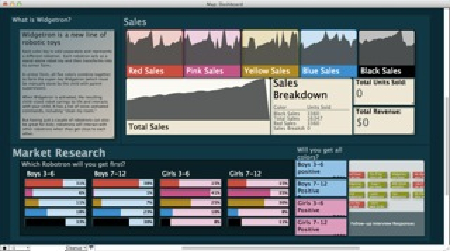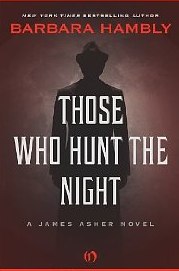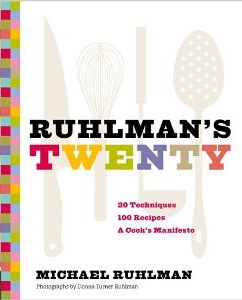A player on my fantasy team, Leo Nunez (closer for the Marlins) ended the season on the Restricted List because he was playing in the US under a false name.
Stacey Mason and Lorie Emerson have been discussing Realism and Hypertext. Here’s Mason:
If we limit the scope of “realism” to literature, the search for the objective truth manifested a focus on gritty realistic depictions of life and hardship. Hypertext is perhaps analogous, as it reflects intricacies of connectivity that have become more and more foregrounded in 21st century life. If moderism’s stream of consciousness is a romantic impression of the mind at work, perhaps hypertext’s fragmented and sporadic paths and its dead ends are the reality of the contemporary experience, a gritty representation to overtake that romantic ideal.
It’s a good idea, worth taking for a test drive, but I’m not sure I’m buying. One objections – to which, to be fair, Mason herself nods – is that Realism was always interested in common experience and, especially, in work. Our best hypertexts so far tend to be deeply introspective. They worry about lots of things – guilt, betrayal, the fragmentation of the body, the slipperiness of memory, the innumerable faces in the crowd – but work isn’t prominent and justice is late to the party.
Conversely, the crystalline clarity of the New Yorker story is one thing hypertext has not really proven to skeptics that it can do. I’m confident that hypertext can do it, and I understand why writers have been drawn in other directions, but the demonstration needs to be made. What hypertext writer recalls Hammett or Hemingway, O’Hara or Salinger?
After we’ve taken this model for a spin, how about walking down the street and trying out Expressionism?
by Barbara Hambly
It was time to revisit this, the best of the postmodern vampire novels – the vampire novel after Reagan and after the plague. Hambly plays be the rules but nonetheless crafts a wonderful vision of vampires with great powers and terrible vulnerabilities.
Why haven’t the cataclysmic bank runs that would herald the end of the Eurozone already started?
My understanding of the apocalyptic dangers of undoing the Euro is that, were a country to announces it intended to leave the Euro, everyone would anticipate devaluation. If Italy said, “Next month, all your bank accounts will be in Lire instead of Euros,” people would load up their cars with cash and deposit it in Geneva or Munich where 100€ will still be 100€ and not L100 worth something less. So, as soon as you start the switch, all your financial institutions instantly fail. (You also have the headache of printing the new currency, retooling all your vending machines, handling the distribution logistics, but that’s another story.)
But people seem convinced that Greece will default, and that Portugal and Ireland may need to as well. Italy and Spain are under speculative attack.
Krugman composes a Venn diagram:

So, what’s keeping everyone from moving their money out of the periphery? What’s keeping those banks going right now? Even if you think there’s only. say, a 10% chance of Italy leaving the Eurozone, and that even if it did leave the devaluation couldn’t possibly be worse than 50%, it seems a straightforward choice:
- leaving your money where it is, you expect to lose 5%
- putting it in your car and moving it costs you a a few days of tourism and some petrol
Argentina, when it unpegged its currency, required that dollars deposited in Argentina would only be redeemable in pesos. You had to have taken your money to New York, you couldn’t just walk it to the Citibank office down the street. Still, there must be dozens of ways to work around this with a telephone call or two – by moving your bank account into T-bills and then selling those T-bills in New York, or asset arbitrage between accounts in Rome and corresponding accounts in London.
This isn’t happening, so clearly my model is faulty. What have I overlooked?
So, why hasn’t the run started? What am I missing?
Jeanne Mansfield in the Boston Review: Why I Was Maced at the Wall Street Protests. Another, independent viewpoint of the scene. Shocking.
The blue-shirts aren’t being too forceful, so we manage to run free, but stay behind to see what happens. Then things go nuts.
The white-shirted cops are shouting at us to get off the street as they corral us onto the sidewalk. One African American man gets on the curb but refuses to be pushed up against the wall of the building; they throw him into the street, and five cops tackle him. As he’s being cuffed, a white kid with a video camera asks him “What’s your name?! What’s your name?!” One of the blue-shirted cops thinks he’s too close and gives him a little shove. A white-shirt sees this, grabs the kid and without hesitation billy-clubs him in the stomach.
Tinderbox Map views let you call attention to exceptional notes (overdue tasks, outlier data points, questions for investigation) by giving them distinctive visual appearance. You can make overdue tasks red, or add a distinctive border to tasks you’ve delegated, or add a badge to tasks you need to do during your monthly trip to corporate HQ.
Sometimes, you may find yourself with too much visual noise as every note seems to compete for attention. Ethan Schoonover’s Solarized color scheme helps here. It offers four primary tones and four background colors, plus eight accent colors, all chosen to work together and all carefully muted in tone and hue.

You can download Solarized as a Tinderbox color scheme file; just drop it in your map to add the solarized colors to your document.
Queens Councilman David Vallone reminds us that members of the Democratic Party sometimes join the GOP in supporting terrorism.
And the police have every right to use the force that they deem necessary to arrest if people aren't cooperating.
Apparently, Vallone campaigns on law, order, and graffiti. Clean walls are nice, but rule of law matters. I see no evidence that anyone in the video was not cooperating, nor did anyone appear to request any cooperation (or render any assistance) after the victims were incapacitated by the officer. Shameful.
(Thanks, David Ryan)
Christopher Beam puts some Standord CS students in the spotlight.
Pleasure comes with pain. You code for hours, you run the program, it fails, you debug it, run it again, pass out on your keyboard, wake up, code some more. But when it finally works, it’s a rush. Thompson, who has dabbled with cocaine in the past, compares it to the drug. “Writing code to me is the same experience,” he says. “It’s misery, misery, misery, misery, euphoria.
Terrific specimen from Bill Barnwell at Grantland: (scroll down: it’s a section intro)
Since Brett Favre threw that interception in the 2009 NFC Championship Game, the amount of fun involved with being a Vikings fan has declined at a seemingly constant rate.
We have lost the war on terrorism. The terrorists are now in control.
A few days ago, four young women were visiting Wall Street to protest deregulation. They were standing in an area that police had designated for protesters, behind a police fence. They were protesting. A senior New York Police Department officer, perhaps angered by something they said, calmly walked over, discharged pepper spray into their eyes, turned his back, and walked away.
A New York Police Department spokesman told the New York Times that this policeman used his pepper spray “appropriately”.
The episode did not merit a mention in this morning’s Boston Globe.
Republican crowds cheer candidates to call for hundreds of additional executions. Republican crowds cheer candidates who call for society to turn its back on sick and dying people who lack sufficient health insurances. Republican crowds jeer a soldier who happens to be gay. Republican candidates routinely scoff at science. And a Republican policeman – you and I both know this fellow is no liberal – casually maims a bunch of women who, at worst, said something that hurt his feelings. That will teach them a lesson, but that wasn’t the point.
The point is to teach us a lesson.
Terror.
The July burglars waltzed off with our television. We have scant time to watch it anyway, and thus far we haven’t bothered to replace it.
I took advantage of the excuse to cut out DVDs delivery from Netflix, saving some $16/month. About a million people have done something similar, it seems. This is a drop on the Netflix ocean, but I expect one problem here is that customers like me – marginal users who don’t watch a lot of DVDs – are Netflix’s most profitable cohort.
The big loss for me was unexpected. It’s not that I miss the movies: I miss the Netflix queue. There’s no particular reason for Netflix to keep a DVD queue for someone who isn’t a DVD subscriber, but for several years I’ve used the Netflix queue to plan the next hundred movies I planned to watch. I should have exported that queue before I cancelled. Now, with Netflix spinning off the DVD business as Qwickster, I guess that queue may be gone for good.
I don’t watch that much football, but I do like to see a game sometimes. Yesterday, I walked down to the local bar to catch Patriots-Chargers. The place was busy, though I bet a lot of these folks have televisions of their own. Lots of happy Patriots fans of course.
I chatted with one fellow, a short guy in his sixties, while he waited for the bartender to pull three pints of Pabst. Gathering them up and heading back to his table, he nodded to me and actually said, in broad Boston: “See you later, pal.” It’s like the first time you meet an Australian who actually says, “G’day mate!”
by Michael Ruhlman
Ruhlman's Twenty: 20 Techniques, 100 Recipes, A Cook's Manifesto
arrived yesterday. I stayed up late last night, browsing through Ruhlman’s essential techniques (which range from Thinking to Dough to Acid). I’m already cooking from this book (a Carolina barbecue, seared and then smoked on the grill and then basted in sweet vinegar sauce for many house). Nice writing, beautiful photography, pleasant anecdotes. I’ve not found the polemic manifesto I’d anticipated, the call to join Ruhlman on the barricades. Perhaps I’ll find it tonight.
I’ll write more later, but it’s a good book and you want your own copy.
There’s an odd elegiac tone to some parts of this book, which often returns to Ratio and Charcuterie and, especially, to The Making of a Chef. Ruhlman tweeted cryptically that this would be his last book. I hope that’s because he’s got new ideas – a television series, or opening a place of his own. But if the cause is malady or malaise, best wishes for better times.

Photographer Richard Chase has another wonderful photo-essay about gender, Amanda Told Me This. “The idea that someone watching me walk down the street can't know if I am a boy or a girl thrills me because I know I'm the one with the answer. Make no mistake, though -- I do deeply love my female body, and often my clothes or my composure reflect that. But I don't let it define me. When I do bind or dress like a boy it is simply another conversation between my spirit and the physical world. Long flowing skirts and button up plaid are both expressions of who I am.”

I trundle along here with a few hundred readers a day – which is terrific and thank you all – but from time to time something crops up and it’s Grand Central Station. One little rant about laziness and corruption in the trade press, one little post from John Gruber’s Daring Fireball, and we’re off to the races.
Genreville ticks along with a modest quantity of traffic and modest comments. Then they hit a story about agents to try to convince YA novelists to omit gay characters, and suddenly the switchboards light up.
This is nice. But it also smells of the nightmare Web, the Web of Drudg and AOL-Huffington and Yahoo headline soap operas. Concentration of traffic is bad for the Web, especially if it’s not accompanied by a generous range of links on a variety of sites and topics, not all of which should be sister sites.
In the Ten Tips essay, I reminded people to Make Good Friends and Choose Good Enemies, and that’s still good to do. It’s good to thrash out these technical and artistic issues with vigor and precision. It’s also important to keep perspective, especially since Europe may be falling apart as we watch and a whole lot of people need jobs and the planet is overheating.
I’d also point out that an enormous amount of what passes for technical and business writing in this industry seems unduly concerned with proving the author’s manhood. We have writers who set out to change stock prices to show they can do it. We have writers who love to kick people when they're down, because that’s when the writer seems to have the biggest feet. Almost everyone is focused on how the iPad will kill this, or next year’s Windows 8 will kill the iPad. It’s all fighting the last war, rehashing the Mac/Win fight and the Netscape/MSIE battle.
That’s all over. Mobile is different, tablets are different, the Web is different, and the world is different. That infant who was born when Sculley took over Apple? She’s 28 now, and her daughter, who is younger than Internet Explorer 7, is the person you call when you’ve forgotten the family’s Apple ID or when you’re stuck in Angry Birds. Software isn’t winner takes all right now, but you’d never know that from reading the business press.
I have a modest proposal: when a writer picks a fight and turns out to be wrong, that writer should go without a byline for a year. Want to drive down someone’s stock to show you can do it? Fine: nobody’s gonna know it was you. Want to leak some sexy story a CEO told you at a party? Go ahead, but you’d better hope the guys at the bar believe you, because your name won’t be on it.
by Frank Tallis
In 1902 Vienna, an inspector for the Security Services teams up with a Jewish psychiatrist to investigate serial murder. Both are musicians, and each is deeply embedded in the urban life of a fascinating city. A visit to Bergstrasse 19 is handled especially well. The setting poses a fascinating formal challenge to Tallis: since the reader knows Vienna stands on the brink of a terrible short century, the mystery’s anticipated restoration of order cannot entirely succeed. Tallis in this way is an interesting contrast to the early Le Carré. I grabbed this after reading an enthusiastic TLS review of a more recent entry in the series, and was not sorry.
Macgasm is apparently trying to drum up traffic by running articles critical of Lion. Joshua Schnell writes
You know I’m right, Lion still needs a lot of work, hopefully the 10.7.2 update that is almost ready for public consumption fixes most of our problems. We’re not alone either, just search for #blamelion on Twitter. It’s kind of becoming a thing.
This sounds dire, but I did search for #blamelion. Two people had twittered it this week. Two.
Whenever an operating system ships, everybody always runs around in circles to complain about it. Operating systems are big. They interact with everything. And they're new, so they are a blame magnet. If you have an application bug, people will blame the operating system. If their disk is wearing out, odds are the operating system installation will push it over the edge and they’ll blame the operating system. If their network is wonky, what sort-of worked before might not work how – or might still sort-of work – and either way, some of them will blame the operating system. Support fora and twitter tags tell you about user morale, not about the system.
Underneath this, there’s a very interesting question: when should you ship an operating system? If you take an extra month, you can fix more things, implement more features, tweak more graphics – and you also defer revenue for a month, delay hardware releases for a month, and make people use older, less powerful, and slower software for a month. Rational economics is hard enough without a hysterical trade press distorting the costs.
An additional factor merits consideration here: in their retail operation, Apple has built the largest and most effective tech support operation the world has seen. The caliber of cheerful expertise in store personnel is astonishing, and their training is remarkable. I don’t know how they’ve managed to scale this, but it’s consistent.
Go to a mall. Visit Nordstrom’s – once the gold standard for customer service. Look at the sales people. Are they cheerful? Are they busy? Are there people who are just standing around, waiting for something to happen? Now try the Apple store.
While I was writing this, another #blamelion twitter appeared – from an Android expert at PC World. Not sure what his problem is, but he definitely blames Lion. The whole thing suggests that people who want Lion to get into trouble – journalists who cover the competition, speculators who shorted AAPL on the Jobs retirement – are trying to launch a meme.
I blame a corrupt trade press. The way you get attention and make money – not much money – in this game is to start flame wars, and so “Apple ships lousy operating system! Scroll bars backwards! Apple doomed!” gets links and traffic and sells ads for off-brand iPad cases. And of course some of the financial press try to launch memes to manipulate stock prices – either because they play the market or simply to show what big lever-pullers they are.
Specialist sites should be written by specialists and should interpret actual information intelligently. The pretext for this article was an EFI update. What’s an EFI? The article doesn't say. An Extremely Fragile Isolator? (It’s the Extensible Firmware Interface, apparently – and so it actually isn’t part of Lion at all.) #blameTheTechTrolls
by Arnold Bennett
I read the 1910 edition, because it might be useful for 1913, and because it’s a nifty (New York) art deco binding. Bennett suggests you reserve 90 minutes a day for serious study, and use your commuting time for contemplation of your studies.
I fancy this must be the book that Leonard Bast read, the book that prompted him to find time to attend concerts and to walk all night into the countryside. And look what happened to him.
by Rebecca Wolff
The Globe’s book page loved this coming-of-age story, in which two strangers come to town and change everything. In this case, the town is a Western Massachusetts hamlet where the past is not deeply buried. The residents, however, seem to know as much as we do about Peter Straub and Stephen King and those Fried Green Tomatoes, and the tale veers in directions that are just about as interesting as can be, given that this is a story of the sexual awakening of a girl who lacks desire and who has no particular interest in waking.
by Joe Haldeman
This amusing little book reflects on how easy it might be to write some original Early Hemingway, passing off a pastiche as the rediscovered manuscripts that Hemingway’s first wife lost in a Parisian train station. In essence, Haldeman emulates Elmore Leonard writing about grifters who are writing about Hemingway. Hilarity ensues, and (this being Joe Haldeman after all) lots of time travel.
A striking feature of early accounts of Hull House, the Chicago settlement house founded by Jane Addams in 1889, are the visitors who came to dinner. Chicago was to the late 19th century world what so much of China is today: a new and vast city in which Modernity could be seen clearly and Money could be made abundantly. Addams wrote widely and well, and soon a steady stream of visitors were coming to dinner to meet Addams and her fellow workers and some of the Halsted Street neighbors. At this time, Halsted was one of the world’s longest city streets, and along its length you’d see street signs in Polish, Swedish, Yiddish, Russian, Bulgarian, Italian, French, Chinese, and English.
So it’s not surprising that so many writers, artists, playwrights and scholars would come to Chicago. But how did they find their way to Hull House, a small private poverty-fighting NGO run by some moderately wealthy American ladies?
They came, I think, because they were asked, and because at Hull House they met crusaders – and they also met poor people – who read their work and wanted to learn from their ideas.
It seems to me that we travel the world a lot these days, but dinner tables like Jane Addams’s are rare. Why should this be? We’re always rushing to conference and symposia, and there we meet our colleagues and their most dedicated students. But we seldom see an undergraduate, and we never meet interested amateurs, or even practitioners or their managers.
Now, some of this might arise because the Settlement House movement has pretty much expired, and some of this may be laid at the grave of the Public Intellectual. The ease of travel makes it harder to take time.
But there was something nobly and distinctively American at that dinner table, the idea that a famous European actress or a controversial Black scholar would have something interesting to say to a recent immigrant from Minsk and an undergraduate from Carbondale – and might well hear something from them worth knowing.





